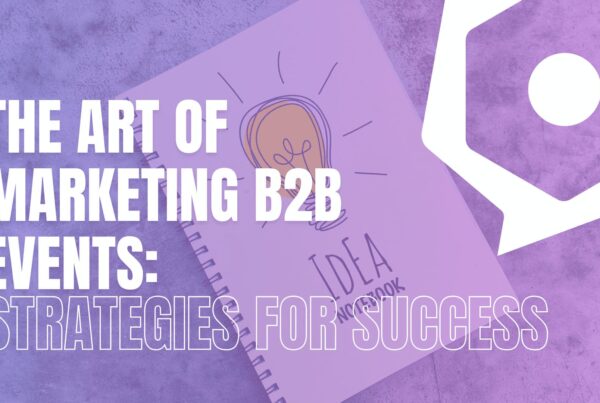Inhalt
How do you measure the success of an event? This crucial question helps event managers achieve their goals and understand how they can improve their events in the future. With concrete facts and figures at hand, event managers can impress their sponsors and stakeholders and demonstrate that their investments have paid off. Key Performance Indicators (KPIs) are the most important figures for measuring the success of your event. In this article, we explore how measuring KPIs can help you elevate your event. Keep reading to learn how to simplify the process of selecting and measuring KPIs.
What KPIs can you collect?
The KPIs you collect depend on the event. An individualized approach is crucial, so consider the individual requirements of your event. Below are some potential KPIs you can use for your event.
#1 Event registrations
The number of event registrations is a good starting point for measuring the success of your event. This is the key to your event. Compare ticket sales with previous years and with your goals for future events. This data is especially important for sponsors. Presenting these figures to your sponsors and stakeholders allows you to market your event more effectively. This data can be further divided between online and on-site registrations, allowing you to have a more accurate overview of the event.
#2 Participants on site and no-show rate
How many participants ultimately attended the event? How many registered participants did not show up on the event day? These figures are important for optimal event planning, using resources strategically, and saving money. The number of attendees on-site is especially important because considerations such as the venue size and catering options are based on them. Take note of trends to optimize your event planning process for the future.
#3 Returning attendees
Having participants return to your event year after year is a great sign of success! This metric indicates the reception of your event and how many attendees have decided to attend again. It’s important to keep track of which attendees return to measure the success of your customer care. You can offer these members of your audience VIP offers to thank them for their loyalty.
#4 Engagement Rate
The engagement rate is a key measure for your event. The engagement rate tells you how actively attendees participated. You can measure engagement with the program and interaction between participants. This metric is especially important for sponsors and speakers, and organizers can impress their stakeholders with these figures. To measure the engagement rate more precisely, keep reading to learn about the different metrics you can measure.
- Number of downloads: The amount of downloaded content at the event tells you how the program was received by the audience. Were particular handouts or materials especially popular?
- Questions and comments in the chat and livestream: This figure measures how the audience received the online aspects of the event. Did your participants engage much with the online program? How many questions were there in the Q&A sessions? This data will help you measure the success of your virtual event features.
- Networking activity: Pay attention to the number of new connected contacts, meetings, and leads gained. These KPIs are used to measure the marketing potential of the event and can help you impress sponsors and attendees.
#5 Social media mentions and engagement
Measure how often your social media content is viewed, liked, and shared to understand your online reach. These KPIs give you an insight into the reach and marketing potential of the event. Additionally, take note of which online channels the interaction took place. Was your content more successful on certain platforms?
#6 Revenue and Profit
Revenue from ticket sales and sponsorships is a critical key figure for your event. Additionally, your profit is a key figure to measure, providing information on which costs need to be kept lower and where to expand. Measure whether the budget was met and conduct a detailed analysis of the cost-benefit ratio of various aspects of your event. With these KPIs in mind, you can monitor the financial success of the event.
#7 Customer satisfaction
Customer satisfaction is the key to measuring the success of events. With a survey or a poll, organizers can measure the audience’s reactions and reviews after the event. What did attendees like about the event? What would they like to see more of next time? What worked well? Present these findings to your stakeholders and use this information to optimize the event for the future.
Measuring KPIs: Event-Apps as a Tool
As an event manager, you have a lot on your plate. How do you collect crucial event data at the same time? This is where online tools such as event apps come into play. With an event app, you can automatically collect relevant data about your event and save it in one place. Additionally, some online platforms allow you to view all relevant data at a glance with a live performance dashboard. All KPIs can be viewed on this KPI dashboard. Additionally, KPI reports can be downloaded with one click for simplified data analysis.
Selecting your KPIs:
Every event has different goals and needs. Therefore, the KPIs you should choose will vary greatly depending on the event. The indicators you choose for the event depend on the goals you before the event. What is most important for your event? Do you want to increase the number of participants? Generate more leads and attract sponsors? Achieve more visibility for your brand? To determine the goals and objectives of the event, consider the target group, reach, and the resources available to you.
Why are KPIs important?
Why are KPIs important? KPIs are an important aspect of the event planning process. These key figures help event managers track the event’s growth over the years. In addition, by measuring KPIs, you improve stakeholder and sponsor satisfaction. These facts and data demonstrate the value of your event. You can present relevant KPIs to your event clients to justify the impact of your event and the resources invested. This way you can ensure ongoing support from investors and sponsors.
Better decision-making and increased efficiency are additional benefits of measuring relevant KPIs. This data helps you make better decisions about the event. You can decide how to dedicate resources and spend your resources wisely. Additionally, you can track revenue and costs and determine if the resources were invested well and where you want to allocate resources in the future. Overall, KPIs help you plan and execute your events more efficiently.
Conclusion
KPIs are a tool for event success. By measuring event KPIs, you get more out of your event. Every event has unique goals and needs, so choose KPIs that are tailored to your event’s individual needs. Measure KPIs to impress sponsors, stakeholders, and attendees. Online platforms such as event apps are a great tool to help you measure KPIs and display them in one place. This simplifies your data collection and analysis. With personalized KPIs, your event will be better every year.


